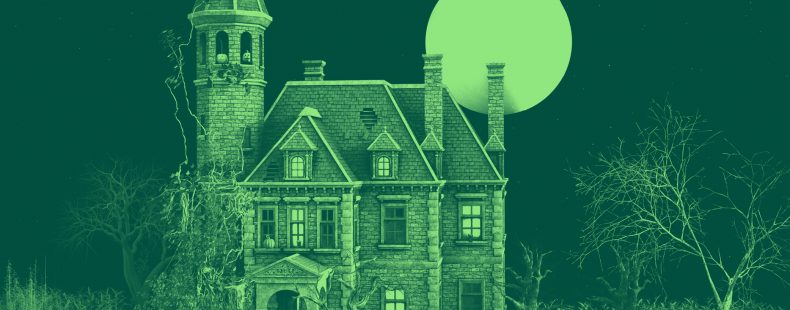It was a dark and stormy night when the writer turned to Dictionary.com for synonyms and definitions to make their writing pop. At least, it would be a dark and stormy night if said writer was basing a story on one of the most cliché (a trite, stereotyped expression that has lost all originality from being long overused) introductions to grace the page.
If you’ve ever read any pulp fiction, you’ve likely come across the sentence “it was a dark and stormy night.” Even if you haven’t, there’s a good chance the sentence—or something that plays with similar phrasing—has made it into your reading diet.
😱 Have you got the perfect opening for a scary story?
Think you can be more original? Enter Dictionary.com’s Scary Story Opener Writing Contest!
As with nearly all sayings that are now overdone, the first “dark and stormy night” started as an earnest original. The English novelist, playwright, and politician Sir Edward George Earle Bulwer-Lytton used the line to open his 1830 book Paul Clifford. In full, the intro reads:
“It was a dark and stormy night; the rain fell in torrents—except at occasional intervals, when it was checked by a violent gust of wind which swept up the streets (for it is in London that our scene lies), rattling along the housetops, and fiercely agitating the scanty flame of the lamps that struggled against the darkness.”
You may notice a lack of periods in that 58-word starting sentence. The rest of the novel goes on to tell the dark tale of a robber who doesn’t know he’s the son of the judge who eventually sentences him to death. The twist at the end is that the robber frees himself and marries his cousin in America.
It’s the beginning—in particular the first seven words—that’ve stuck with the literati, however.
For one, it’s filled with melodrama (a dramatic form that does not observe the laws of cause and effect and that exaggerates emotion and emphasizes plot or action at the expense of characterization). It’s also become the archetypical Victorian-era trope (a convention or device that establishes a predictable or stereotypical representation of a character, setting, or scenario in a creative work).
Why is “a dark and stormy night” such a famous line?
This over-descriptive and melodramatic style was popular in Bulwer-Lytton’s time. One of the final chapters of The Three Musketeers (1844) starts with something similar, “C’etait une nuit orageuse et sombre,” which translates to, “It was a night stormy and dark.” The exact Bulwer-Lytton phrasing has even made its way into popular modern books: Madeleine L’Engle’s Newbery Award-winning A Wrinkle in Time (1962) starts with the exact same line.
The line has become ripe for parody (a humorous or satirical imitation of a serious piece of literature or writing) over the years. Most famously, the Peanuts comics creator Charles M. Schulz often drew the dog Snoopy typing “It was a dark and stormy night” on his typewriter.
One of the most obvious signs of the lasting impact of Bulwer-Lytton’s now infamous line (even if this longevity is for dubious reasons) is the Bulwer-Lytton Fiction Contest. Started in 1982 and sponsored by the San José State University, California, English department, the annual contest asks people to send in their best terrible opening sentence to a novel.
The contest was started by Scott Rice, and the crowned winners have worked to find new ways to use clichés and overwrought language. Each winner has their own take on the style, but they often use too many descriptive words in a seemingly never-ending sentence. The prize for winning is far from fame and glory. As the official call for entries states:
“Finally, in keeping with the gravitas, high seriousness, and general bignitude of the contest, the grand prize winner will receive … a pittance.”
You shouldn’t completely judge Bulwer-Lytton for his most mocked seven words, though. The man is the standard-bearer for those writers who are more than a single bad cliché. A friend of Charles Dickens’, he wrote more than 30 popular novels and three plays—and he is also famous for the line, “the pen is mightier than the sword.”
Now go out there and use your mighty pen to wade through the dark and stormy night. Just maybe try and avoid the trope for something more original—especially if you’re entering our #HauntingHooks Scary Story Opener Writing contest.














